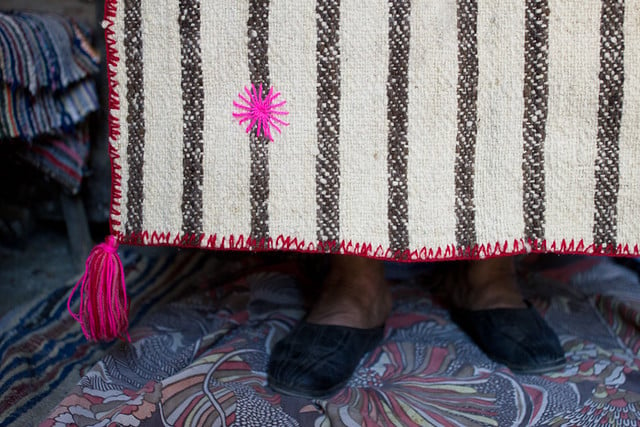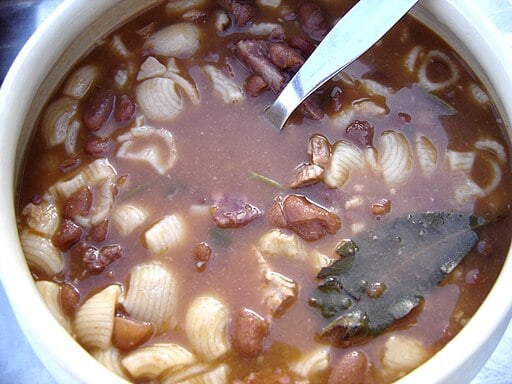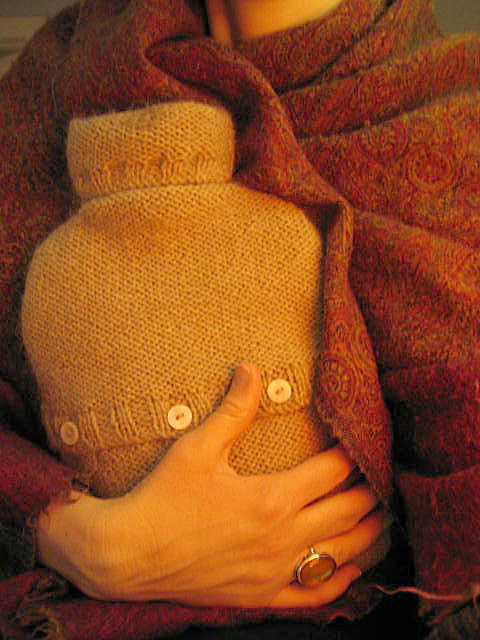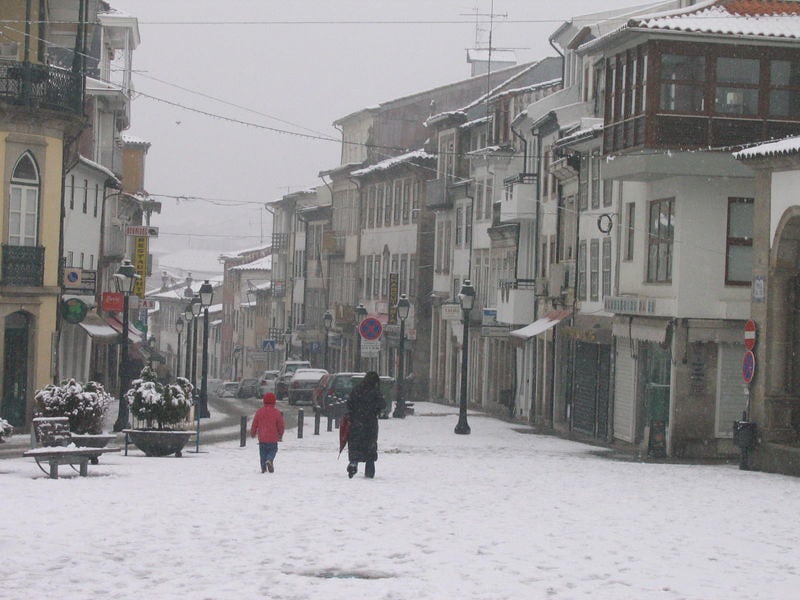The Portuguese winter can feel much colder than it actually is, especially in uninsulated city apartments or old countryside homes. Wind passes through poorly sealed doors and windows, and the moment the sunshine disappears, the chill sets in. Some wonder how past generations managed to survive these harsh months.
In the far reaches of the country or old city buildings, where the heat doesn’t come from central heating, surviving the cold requires cunning. Let’s delve into the ancient and modern traditions that have helped and still help the Portuguese to keep warm during the winter, in a country that, at first glance, always seems to be bathed in sunshine.
Fireplace
The Heart of the Home
As it has done for centuries, in many Portuguese villages, the fireplace is the heart of the home – a place to cook, share stories and even dry clothes. A well-lit fireplace, fueled by oak or pine wood, can warm the cold stone walls, creating a microclimate inside the house. The embers continue to burn through the night, ensuring that the cold of the early morning does not penetrate so deeply. It’s a technique that persists in villages like Monsanto and Marialva, where the sound of crackling wood still echoes in the cobbled streets.
Wool Blankets
The Weight of Winter
No winter is complete without a good wool blanket. Blankets are like the extra skin that villagers wear, and they are often made by hand from local wool. In the mountain villages of Serra da Estrela, where shepherds raised their flocks at unforgiving altitudes, wool was a vital resource. The thick, heavy blankets protect against the cold. Wool, being a natural insulator, keeps body heat in, which is why many still turn to these garments during the coldest nights.

Soups and Broths
Warming Up from Within
In the villages, warmth is also found in the kitchen. Rich soups and broths, made with fresh local vegetables, game or sausages, are elixirs that protect against the winter chill. One example is the traditional “sopa da pedra,” a dish that was born in Almeirim, but spread throughout the country, adapting to whatever was at hand. This robust soup warms both the stomach and the soul, creating an internal barrier against the cold. Fish stew, a typical dish of the coastal regions, also plays this role, warming the people who face the Atlantic wind during the winter.

Hot Water Bottles
Small but Mighty
On the coldest nights, when neither the fireplace nor the blankets seem sufficient, some people turn to old hot water bottles. These small objects, often forgotten in cities, is still an essential trick for villagers. Filled with boiling water and placed at the foot of the bed, it creates a comfort zone in a place where the cold is relentless. In villages like Sortelha or Castelo Mendo, the nights are long and freezing, but with these small but mighty heat centers, the bed becomes a refuge. It’s a tradition that is passed down from generation to generation, a ritual before bed that almost always guarantees a peaceful night.

Fairs and Markets
Warming Up on the Move
During the winter, life doesn’t stop in the villages. Fairs and markets go on and people keep moving, knowing that inertia is the enemy of warmth. At the fairs in Beira Alta or in the Minho regions, the simple act of walking and trading helps to combat the cold. Villagers wrap themselves in thick wool coats and hats, and the body heat generated by constant movement makes the cold seem more bearable. In the stalls, makeshift fires also help to create small centers of warmth, where people gather to warm their hands, drink a glass of hot wine, and share a piece of homemade bread.

Água-pé and Red Wine
Liquid Heat
The drink plays an important role in combating the cold in Portuguese villages. During the winter, many turn to água-pé, a traditional drink made from grape must, or robust red wine. In the Douro, Alentejo, and Trás-os-Montes, it’s common to see villagers drinking a glass to warm up body and soul. Água-pé, because it is less alcoholic, allows you to drink larger quantities without getting drunk, but the warmth it offers is immediate. Red wine, on the other hand, with its higher alcohol content, warms you up in a slower but longer-lasting way, making it a faithful companion during long, festive dinners that last well into the night.

Final Thoughts
In Portuguese villages, winter can be a challenge of endurance. Many tips and tricks to deal with the cold have been passed down from generation to generation. Between the fireplace, the wool blankets and the steaming dishes, winter in Portuguese villages ultimately becomes a test of survival that, in the end, creates an even stronger bond between people and place. Because, like so many other things in life, the cold is easier to cope with when it’s shared.
Remember, while Portuguese winters are generally mild, the humidity can make it feel colder than the thermometer suggests. Adapting to the local climate and lifestyle will help you stay comfortable during the winter months.

